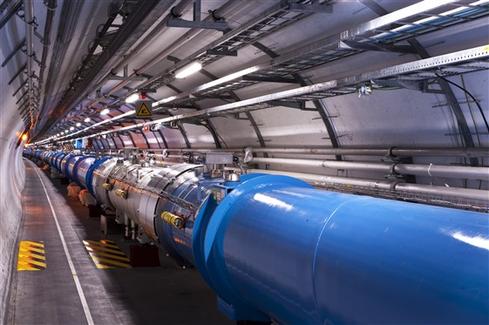CERN Taps Brocade For SDN
The legendary particle physics lab will use Brocade's OpenDaylight-based SDN controller to build out its SDN strategy.
July 29, 2015

Brocade has inked a deal with CERN openlab to supply software-defined networking technology to support CERN's Large Hadron Collider, the world's biggest particle accelerator.
The partnership involves Brocade providing its OpenDaylight-based, OpenFlow SDN controller along with its OpenFlow-supporting MLXE routers and ICX switches. The deal also includes Brocade's Flow Optimizer, an SDN application for network visibility and control.
CERN, which operates its lab on the Franco-Swiss border near Geneva, has already been using the OpenDaylight open source SDN controller; OpenDaylight Project Executive Director Neela Jacques highlighted CERN in a keynote at this week's OpenDaylight Summit in Santa Clara, Calif. What Brocade will provide is support, including defect resolution, security response, professional services and training, Kevin Woods, Brocade director of product management of software networking, told me in an interview.
"As they build on OpenDaylight and build applications and services, they'll need a supplier behind that to provide ongoing support," he said.
The overriding issue for CERN is a huge quantity of data, Woods said.
"They produce petabytes of data every second while LHC is running. It's mind boggling," he said. "There's always the challenge of storing and analyzing that quantity of data. But just getting the data from point A to point B -- getting it off their fiber backbone to specific servers, locations or participants in their organization -- that's an extraordinary challenge for them because of the quantity of data."
CERN needs to be able to share data generated by the Large Hadron Collider with numerous outside scientific institutions. "We need to transfer very large amounts of data -- in the shortest possible time -- to our 150+ partners in the Worldwide LHC Computing Grid (WLCG)," Tony Cass, head of the IT communication systems group at CERN, said in an email interview.
Figure 1:  (Image: LHC tunnel/CERN)
(Image: LHC tunnel/CERN)
Edoardo Martelli, head of the network engineering team at CERN, said SDN has the potential to help manage CERN's network in several ways.
"In particular, SDN could make our network more flexible and more reactive to sudden changes to its topology, utilization or traffic patterns. SDN can also help us monitor the status of the network and alleviate congestion or throttle traffic that looks suspicious," he said in an email.
"It is these aspects of SDN that we are exploring with Brocade in the context of our CERN openlab collaboration. We hope to make the network self-aware and intelligent, able to recognize high-volume data transfers when they happen and route them over the best possible path," Martelli added.
CERN openlab, created in 2001, is a public-private partnership between CERN and technology companies to support LHC.
OpenDaylight is a Linux Foundation project founded by IT vendors including Cisco, Dell, IBM and Brocade, which is currently a platinum member. The project released the third iteration of its SDN software, Lithium, in June. Brocade unveiled its commercial version of the OpenDaylight controller last fall, and has committed to contributing any enhancements back to the OpenDaylight community to ensure interoperability with other OpenDaylight-based controllers.
About the Author(s)
You May Also Like





